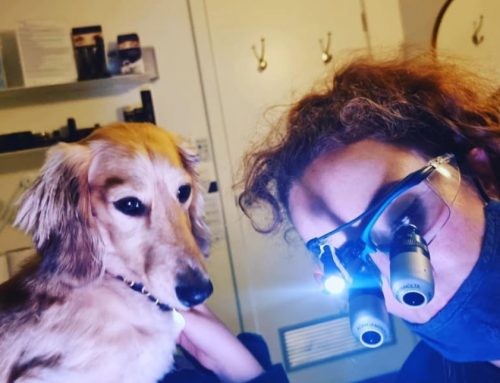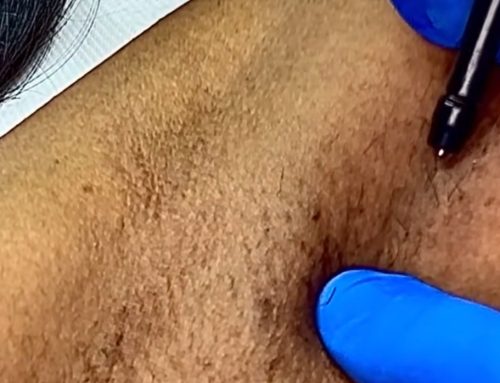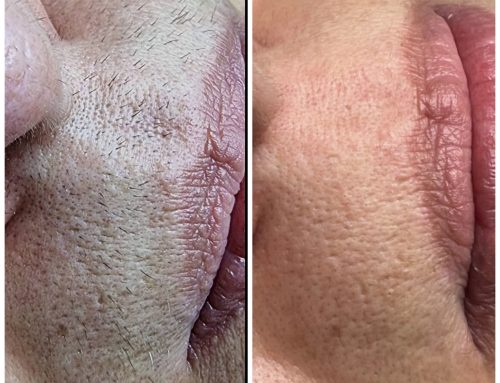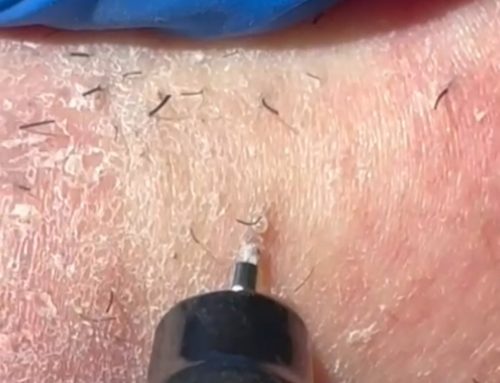The Cellular Skin Ageing Process Explained
Ageing is a normal and natural process, especially when it comes to our largest organ, the skin. Like the rest of our body, biological processes slow down as we move through life, eventuating in cellular damage and – in the case of our natural barrier – associated side effects like lines, wrinkles, discolouration and sagging.
While unavoidable to a certain extent (and let’s face it, it serves as signs of a life well lived), there are things we can do to manage the speed and severity of skin ageing, from amping up our skincare routine to ensuring our lifestyle habits are as healthy and balanced as possible.
A good place to start is by understanding the process of cellular ageing, which is why we’ve put together an educational guide alongside some top-notch product recommendations – because we’re helpful like that!
Keep scrolling for more.
Skin Ageing On A Cellular Level
As the largest organ of the body, it makes sense that our skin is prone to visible signs of wear and tear. Our 20s are widely considered to be the peak of skin health (in our adult life, anyway), before a scientific phenomenon known as ‘cellular senescence’ kicks off the ageing process in our 30s.
Senescence occurs when cellular mutations, ongoing oxidative stress, inflammation, gene mutation and telomere shortening (chromosomal damage) starts taking a toll on skin health, resulting in irreversible damage.
This process of senescence (or skin ageing) occurs in two ways: intrinsically and extrinsically.
Intrinsic Ageing
Intrinsic ageing concerns the biological functions we can’t control, like collagen and elastin breakdown, reductions in fat stores, and sluggish cell turnover. This is just a part of getting older, so try not to get too caught up with its impact.
Extrinsic Ageing
Extrinsic ageing is influenced by a number of different factors, most of which are lifestyle choices we have some control over: smoking, a high-sugar diet, exposure to pollutants, trauma and most prevalent of all, UV exposure (according to studies, 80 per cent of extrinsic ageing is caused by unprotected exposure to UV radiation).
The cumulative result of extrinsic ageing will depend on your skin type, but it manifests as coarseness, deep wrinkles, broken capillaries, sallowness, irregular pigmentation and loss of elasticity.
Your Complexion Defence Plan
Rest assured it’s not all doom and gloom when it comes to skin ageing, however. If you want to ensure a healthy complexion for longer (and who doesn’t?) read on for some top tips.
Healthy Habits
Lifestyle plays a huge role in the ageing process our skin will go through. Our advice is to make sure you eat a balanced diet rich in wholefoods, keep processed sugar to a minimum, avoid smoking and excess alcohol, and keep out of the sun where you can – and wear the damn sunscreen.
Keep It Clean
Cleansing is essential for skin health as it removes dirt, debris and environmental pollutants. We recommend double cleansing your face every single night: not only does this purify the pores, it ensures treatment serums can get in to do their job. We love L-Lactic Cleanser because it’s enriched with Alpha-Hydroxy Acids to gently refine, resurface and rehydrate.
Focus On Protection
Protecting your skin is one of the smartest things you can do to slow down the signs of extrinsic cellular ageing. Daily sunscreen is a no-brainer, but you need to reapply it to your skin frequently, especially if you’re sweating or swimming.
Antioxidants are another proven way to prevent free-radical damage and the associated cellular damage that occurs every time we step outside. We love L-Ascorbic Acid as it neutralises these free radicals and encourages collagen production. Try sprinkling a little Vitamin C 100% powder into your moisturiser daily.
Targeted Treatments
It’s 100-per-cent possible to improve skin function with targeted serums and scientifically backed ingredients. Retinol, for example, is a top choice for speeding up cellular turnover as it works to constantly replace damaged cells with fresh healthy ones.
Peptides are another noteworthy ingredient as they encourage collagen and elastin production, which will reduce wrinkle depth, and we love Niacinamide (or Vitamin B3) as it unifies tone, while encouraging optimal barrier health.
Try:
Expert Reveal Retinol Face Oil
Expert Reset Skin Firming Peptide Serum
An Inside-Out Approach
Another useful tactic to defend against skin ageing is via collagen supplementation. Collagen Pluscombines a smart mix of Hydrolysed Marine Collagen Peptides, Zinc, Vitamin E and Grape Seed Extract to stimulate vital Type I Collagen production for increased hydration and diminished wrinkles. It’s also flavourless, so can be easily mixed into your morning smoothie, coffee or oats – how good is that?




